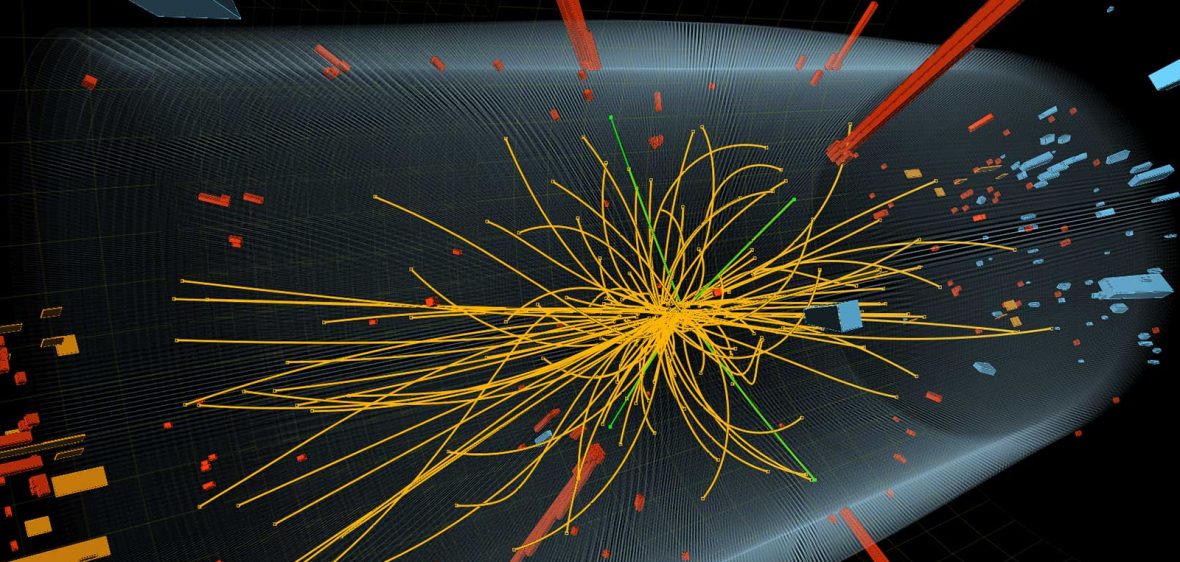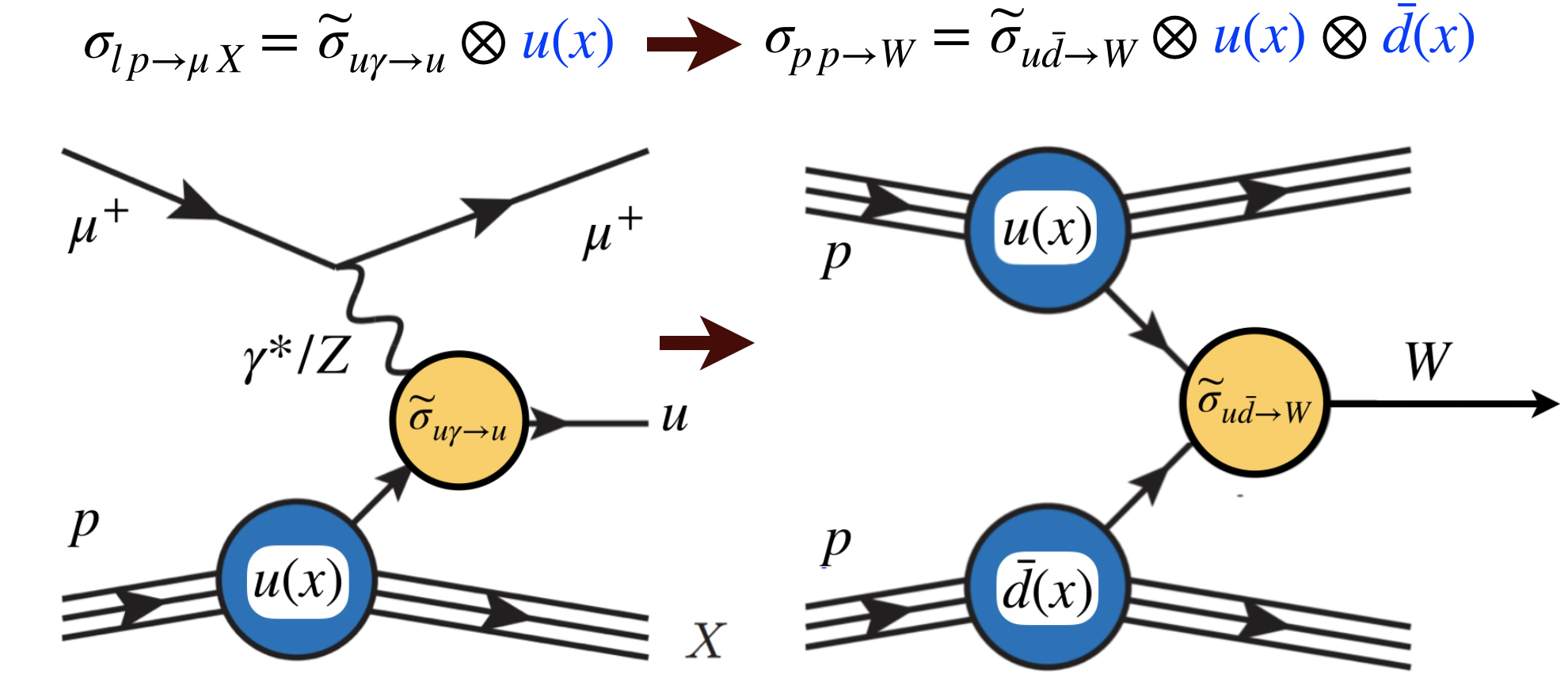2024-2025
- Particle Physics 2, UvA/VU MSc program in Physics and Astronomy (Joint Degree), GRAPPA track. Lecture notes (work in progress) for the Quantum Chromodynamics part of the course (first 7 lectures).
2023-2024
- Effective Field Theories, UvA/VU MSc program in Physics and Astronomy (Joint Degree), Theoretical Physics track. Lecture notes (work in progress, current version May 2024).
2022-2023
- Effective Field Theories, UvA/VU MSc program in Physics and Astronomy (Joint Degree), Theoretical Physics track. Lecture materials and exercises available from the Canvas page of the course. Lecture 4: Effective Field Theories below the Weak Scale: lecture notes scan: part 1, part2, part3
- Nikhef Topical Lectures on Effective Field Theories, lecturer on the topic of “Constraints on EFTs from high-energy colliders”. The full list of lectures is available from the Indico page, while my lectures are based on these lecture notes, condensed into these handout notes.
2020-2021
- Applications of Machine Learning for Electron Microscopy, guest lecture at the Electron Microscopy Characterisation of the Nanoscale course, Master program in Applied Physics, Delft University of Technology, June 2021. Slides available here, and the Jupyter notebook with the hands-on tutorial can be found here.
- Quantum Mechanics 2, 2nd year course in the e Natuur- en Sterrekunde BSc program at the UvA/VU (joint degree). The lecture notes summarise and extend the relevant topics for the course presented in the textbook (Introduction to Quantum Mechanics 3rd edition by Griffiths and Schroeter).
- Chapter 3: the Formalism of Quantum Mechanics. Lecture recordings: lecture 1, lecture 2, lecture 3
- Chapter 4: Quantum Mechanics in Three Dimensions and the Hydrogen Atom. Lecture recordings: lecture 4, lecture 5, lecture 6, lecture 7
- Chapter 5: Quantum Mechanics for Identical Particles.
- Chapter 7: Time-Independent Perturbation Theory. Lecture recordings: lecture 11, lecture 12.
- Chapter 8: The Variational Principle. Lecture recordings: lecture 13
- Complete lecture notes (updated 10.03.2021)
- Machine Learning for Physics and Astronomy, 3rd year course in the Natuur- en Sterrekunde BSc program at the UvA/VU (joint degree), Honours Track. The lecture slides and recordings, Jupyter notebooks for the tutorials and additional material can be found in the course GitHub repository, https://github.com/LHCfitNikhef/ML4PA. Part of the course is given by guest lecturers who present specific applications of machine learning to different areas of physics and astronomy.
- Lecture 1: basic concepts, supervised learning, model fitting, regularisation, the bias/variance tradeoff. Video recordings of the lecture: Part A; Part B.
- Lecture 2: optimisation strategies, stochastic gradient descent, deep neural networks, backpropagation. Video recordings of the lecture: Part A+B.
- Lecture 3: supervised learning for classification, logistic regression, random forests, support vector machines. Video recording of the lecture: Part A+B.
- Lecture 4: unsupervised learning, clustering, dimensional reduction, data visualisation, ensemble methods and bootstrapping. Guest lecture: machine learning in astronomy (A. Chhotray), slides. Video recordings of the lecture: Part A (unsupervised learning), Part B (guest lecture: machine learning in astronomy), Part C (ensemble methods), Part D (dimensionality reduction and data visualisation).
- Lecture 5: convolutional neural networks, Bayesian neural networks, reinforcement learning. Video recording of the lecture: Part A (reinforcement learning), Part B (convolutional neural networks and bayesian NNs), Part C (ML in astroparticle physics). Guest lecture: Bayesian posterior estimation with classification networks (C. Weniger), slides and direct link.
- Lecture 6: adversarial learning, generative adversarial networks. Video recording of the lecture: Part A (Information Theory revisited), Part B (generative models in ML). Slides and recording of Part C (adversarial network and generative adversarial learning). Slides and recording of Part D (Guest lecture by S. Caron on ML for HEP) available via Canvas.
- Lecture 7: Part A: kernel methods and the dual representation, Gaussian processes. Part C: applications of machine learning for condensed matter (guest lecture by T. Bereau). Video recordings: Part A (Kernel methods and support vector machines), Part B (gaussian processes), Part C (machine learning in condensed matter).
2019-2020
- Introduction to Particle Physics, 2nd year course in the Natuur- en Sterrekunde BSc program at the UvA/VU (joint degree). Guest lecture on Feynman diagrams and effective theories in particle physics. The recording of the Zoom remote lecture can be is also available here.
- Quantum, Atomic, and Molecular Physics, part of the Medical Natural Sciences (Medische Natuurwetenschappen MNW) Bachelor program at the VU Amsterdam. Study guide and syllabus of the course available here, additional course materials available via the VU Canvas page (only for registered students).
- The Standard Model as an Effective Field Theory, PhD course at the DRSTP (Dutch Research School of Theoretical Physics) school in Dalfsen (the Netherlands), February 2020. Short course aimed to Dutch PhD students in the area of Theoretical High Energy Physics. Lecture notes available here (version 4/2/2020, work in progress). Some previous notes on SMEFT lectures from the Nikhef Topical Lectures in Flavour Physics available also here.
- Quantum Field Theory (extension), part of the Master course in Physics and Astronomy, Theoretical Physics track. Topics covered include regularisation of divergences in loop QFT calculations, renormalisation in scalar QFTs, effective field theories, symmetries and quantisation of the Abelian gauge field, and scattering processes involving photons. The Study Guide of the course can be found here, with additional course materials available via the UvA Canvas page (only for registered students).
- Lecture notes of the 2019-2020 course can be found here.
- Introduction to Machine Learning for Physics and Astronomy, graduate course at the Universidad Complutense de Madrid in the framework of the IPARCOS workshop “Applications of Machine learning and deep learning to Physics and Astronomy”. Madrid, December 2019. Slides of the course available here.
- Machine Learning: a New Toolbox for Theoretical Physics, part of the Advanced Topics in Theoretical Physics aimed to the PhD students of the Delta Institute for Theoretical Physics (Delta-ITP) from Amsterdam, Utrecht, and Leiden. The Study Guide for the course can be found here and the course GitHub repository containing the course materials (lecture notes, examples for the tutorial sessions) is available here.
- Lecture 1: Basic concepts and terminology in Machine Learning, supervised learning, model fitting and polynomial regression, regularisation and cross-validation, optimisers in ML, gradient descent and its variants, genetic algorithms and its variants.
- Tutorial 1 (iPython notebooks): model fitting with polynomial regression, gradient descent methods
- Lecture 2: concepts of statistical and bayesian learning, deep neural networks, backpropagation, regularisation of neural networks, supervised learning for classification and logistic regression.
- Lecture 3: dimensional reduction and data visualisation, principal component analysis, unsupervised learning, clustering, ensemble methods, bootstrapping, random forest and decision trees, reinforcement learning with Q-learning
- Lecture 4: convolutional neural networks, energy based models and Boltzmann learning, generative models and adversarial learning, generative adversarial networks, machine learning for quantum computation.
2018-2019
- The Standard Model Effective Field Theory, part of the Nikhef Topical Lectures on Flavour Physics and CP violation.
- Van Quantum Tot Molecuul, 2nd year course in the Medische Natuurwetenschappen BSc program at the VU Amsterdam. Lecture notes available below:
- Quantum Field Theory Extension, MSc program in Physics and Astrononomy (joint UvA/VU degree). Lecture notes available here:
- Introduction to Elementary Particle Physics, 1st year course in the Applied Physics bachelor program at the Technical University of Delft.
- Lecture notes available here
- Slides lecture 1: Particle Physics in the Higgs boson era
- Slides lecture 2: Basic building blocks of the Standard Model
- Slides lecture 3: Fermion, bosons, and neutrinos (I)
- Slides lecture 4: Fermion, bosons, and neutrinos (II)
- Slides lecture 5: The strong interaction and hadron structure
- Slides lecture 6: The weak interaction (I)
- Slides lecture 7: The weak interaction (II)
- Slides lecture 8: The Higgs boson and collider physics
- Introduction to Particle Physics, 2nd year course in the Natuur- en Sterrekunde BSc program at the UvA/VU (joint degree)
- Guest lecture on Feynman diagrams for particle physics
2017-2018
- Nikhef Topical Lectures, specialised graduate courses for PhD students
- Machine Learning applications in High-Energy Physics, part of the Nikhef Topical Lectures on Machine Learning and Artificial Intelligence, April 2018
- Physics at Future High-Energy Colliders: Theory Vision, part of the Nikhef Topical Lectures on Physics at Future Colliders
2016-2017
- Nikhef Topical Lectures, specialised graduate courses for PhD students
- Symmetries (and their breaking) in the Standard Model, part of the Topical Lectures on Symmetries
2015-2016
- The Standard Model and LHC Phenomenology, part of the Master Course in Mathematical and Theoretical Physics, University of Oxford
- Lecture notes of the course available here

